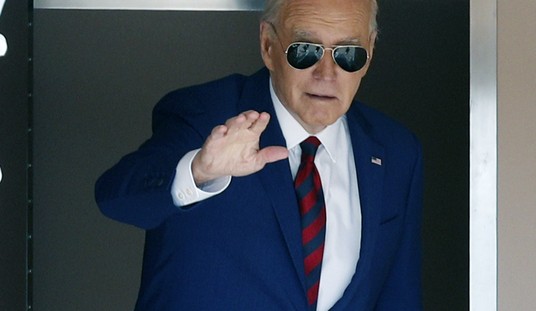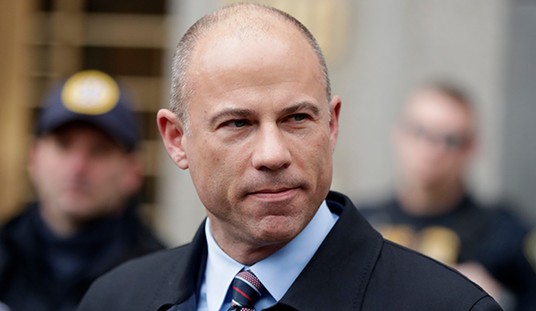Did you know that Senator Amy Klobuchar (D-MN) is running for president? You could be forgiven for not knowing because she has been polling at less than 5% nationally since declaring for the Democrat nomination in February 2019. She hasn’t gotten much of a bump since the New York Times bestowed half of their “double-endorsement” on Klobuchar and Elizabeth Warren on 19 January. And she’s probably grinding her teeth since the Des Moines Register, the largest daily newspaper in neighboring Iowa, endorsed Fauxcahontas on Saturday. Who knows? She is probably trying to write that off as a political extension of the long-standing annual Minnesota-Iowa college football rivalry for custody of the “Floyd of Rosedale” trophy.
Since declaring for the presidency, Klobuchar has been the recipient of many puff pieces in the legacy media, as well as softball interviews on many of the major news networks. There was a brief flurry of press reports in early 2019 about how she “runs roughshod” over her staffers, but that story was spun to enhance her contrived image of “being tough” – and then the story was dropped down the memory hole without any further investigations. Here is an example of how CNN (a/k/a Democrat agit-prop media) spun the story last March:
Sen. Amy Klobuchar’s nascent presidential campaign has been dogged by allegations that the Minnesota Democrat mistreated her Senate staff. In an interview with CNN’s Poppy Harlow on Thursday, the senator admitted she “can always do better” with her staff, but said her toughness would be an asset on the world stage.
Klobuchar cast the reports of staff mistreatment as a positive for her ability to operative on the international stage as president, namely when dealing with Russian President Vladimir Putin.
One would think that a candidate endorsed by the NY Times might deserve more scrutiny than Klobuchar has so far undergone, but who knows? Perhaps her Democrat rivals don’t view her as a real political threat since she hasn’t caught on with Democrat primary voters so far.
Thankfully, independent investigators have been doing what the Democrat-run legacy media refuse to do. Peter Schweizer’s new book, Profiles in Corruption, contains a devastating chapter on Amy Klobuchar. He lays out a well-sourced case that Klobuchar isn’t what she claims to be: a tough anti-crime and anti-corruption prosecutor who is a “progressive” and champion of “average Americans.” To the contrary, he makes a strong case that her prosecutorial record as chief prosecutor of Hennepin County (the most populous Minnesota county that encompasses most of Minneapolis) was to “punch down by throwing the book at smaller fish, while avoiding prosecutions of larger and more serious criminal operators.” And those big fish were often donors to her various campaigns. Here is one example from Schweizer’s book:
[T]he largest financial fraud by far in her jurisdiction involved a massive conspiracy that she never even appeared to investigate. It involved the second-largest Ponzi scheme in American history to date (surpassed only by Bernie Madoff0. It involved billions of dollars, dummy corporations, and an elaborate scheme that ripped off investors for hundreds of millions of dollars. The man at the center of it, however, happened to be in business with [Klobuchar’s main political supporters,] the Mondales, was a Klobuchar friend, and one of her largest financial backers. Indeed, Petters Group International (PGI) would prove to be her single largest campaign donor when she ran for the Senate in 2006.
Just weeks after she announced her candidacy in February 2005, Petters and thirteen employees in his companies all gave her contributions in a single day (March 31, 2005). By the quarterly report released right before the 2006 election, they were her largest contributor by far – donating $71,600 or 32 percent more than her second largest donor, her old law firm. By the end of 2006, Petters Group Worldwide had contributed more than $120,000 toward her successful bid.
In his book, Schweizer goes on to detail Klobuchar’s relationship with Tom Petters and how the scandal unfolded, including Klobuchar’s calling of Petters days after his house was raided as the scandal broke in September 2008 (strangely, Minnesota’s other senator at the time, Norm Coleman, did not call him).
Klobuchar has frequently labeled herself as a “progressive,” but I wonder how many real progressives and “little people” know about her shaking down big companies for campaign contributions in exchange for earmarks? Here is how Schweizer described how she operated as a US senator:
Part of her strategy was using her legislative agenda as a means of extracting donations from powerful corporations who wanted work done on Capitol. One of those techniques included the effective use of earmarks for her campaign funders.
…
According to Open Secrets, she sponsored or cosponsored 103 earmarks totaling more than $200 million in fiscal year 2008, her first full year in the Senate. (That put her near the top third in the U.S. Senate for earmarks.) She had another eight-eight earmarks totaling more than $133 million in fiscal year 2009. In the last year that members of Congress could officially use earmarks, she had eight-eight earmarks in excess of $117 million (fiscal year 2010).
Earmarks aren’t “progressive policies,” Amy. They are set-asides of taxpayer dollars for campaign contributors – pay for play in action. Progressives might call that “corporate capitalism.” Here are just two examples of large contributors whom she shook down in one of her “earmarks-for-campaign contributions” efforts:
- Her old lawfirm, Dorsey and Whitney, who cashed in on supporting contracts for developing the multi-million dollar Northstar light-rail project funded by earmarks
- The Pohlads, billionaire bankers and owners of the Minnesota Twins, who benefited from the rail project
There seems to be no large donor who couldn’t buy a piece of Klobuchar for campaign contributions. The rest of the chapter details entity after entity gaining regulatory advantage, earmarks, carveouts in federal regulations, and other benefits after having made significant campaign contributions to Klobuchar. The amount of corporate cash flow to a supposedly “progressive” Democrat senator really surprised me.
Schweizer finished up the Klobuchar chapter with the favors she did for Minnesota-based Cargill, Inc., a giant food processor in the Midwest, and one of her top donors these days. Among other “goodwill,” she supported carveouts in financial regulations to allow Cargill to continue to leverage and exploit derivatives (very important for a commodities-producing company). Hence, my new name for Amy Klobuchar: the Senator from Cargill, Inc.
The woman is not what she advertises herself to be and deserves much more scrutiny than she has been subjected to for someone endorsed for the Democrat nomination by the NY Times. One would think that average Democrat primary voters would want to know a lot more about Klobuchar before canvassing or voting for her, including the details described in Schweizer’s excellent book.
The end.













Join the conversation as a VIP Member